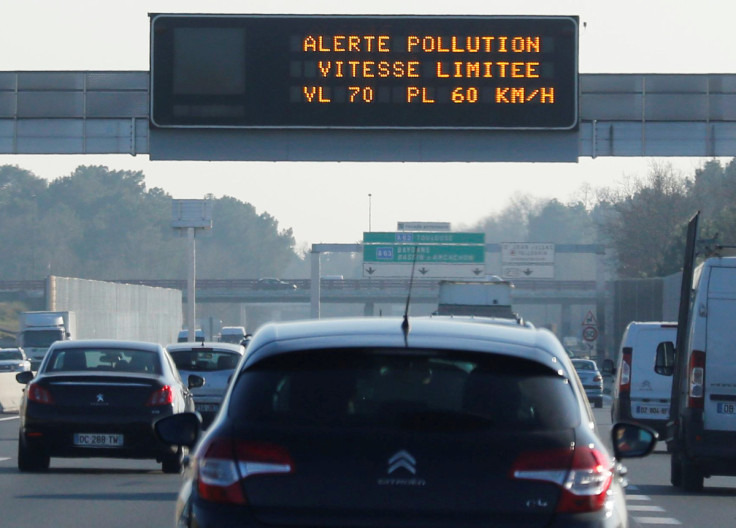Record-Breaking Petition Opposes New 20mph Speed Limit in Wales
On September 17, 2023, Wales became the first UK nation to implement a default 20mph speed limit on most residential roads across the country.

In a surprising turn of events, a petition opposing the recently implemented 20mph default speed limit in Wales has garnered a record-breaking number of signatures, with more than 244,000 people voicing their dissent as of Tuesday evening.
The petition calls on the Welsh government to "rescind and remove the disastrous 20mph law".
The controversy surrounding this speed limit has escalated into a political clash between members of the Welsh Conservative Party and the ruling Welsh Labour Party.
Tom Giffard, a Welsh Conservative Member of the Senedd representing South Wales West, confronted First Minister Mark Drakeford during a session, asking him to reconsider the 20mph scheme in light of the overwhelming public opposition. Drakeford's response was blunt — "No".
Drakeford, defending the policy, stated: "Behind this decision lies... the lives of people who would otherwise be caught up in road traffic accidents which will not happen when people are travelling at 20mph but do happen when people are travelling at 30."
This stark disagreement over the 20mph speed limit policy has also led to heated exchanges between Mark Drakeford and the leader of the Welsh Conservatives, Andrew RT Davies, whom Drakeford labelled a "disgrace". The Welsh Conservatives have consistently claimed that this is a blanket limit, a contention challenged by Welsh Labour, which accuses them of spreading misinformation.
In response, Andrew RT Davies penned a letter to the presiding officer, Elin Jones, demanding an apology from Drakeford and asserting that the allegation against him was "of no foundation".
Davies argued: "It is correct to state the previous blanket 30mph limit has been replaced by a blanket 20mph limit and it is misleading of the First Minister to claim otherwise."
The controversial 20mph speed limit came into effect on September 17, making Wales the first UK nation to introduce a new default 20mph speed limit on most residential roads across the country. Proponents of the change argue that it is expected to save up to 100 lives and prevent 20,000 casualties in the first decade, creating safer communities where children can feel secure playing outside.
To illustrate the benefits of slower speeds, Deputy Climate Change Minister Lee Waters and Minister for North Wales Lesley Griffiths joined pupils from Albany Primary School and Ysgol Sant Elfod Primary School on their walk to school. These children also participated in an exercise to learn about the advantages of walking, cycling and scooting, supported by active travel organisations Living Streets and Sustrans.
Deputy Minister for Climate Change, Lee Waters, stated: "It's simple – slower speeds save lives and help create safer communities for those that live there. Evidence shows that a vehicle travelling at 30mph will still be travelling at 24mph in the time it would take a car travelling 20mph to stop."
He continued: "We know decisions like this can be unpopular and we know that change is never easy, but what's one minute on your journey time if it saves a life and reduces a lifetime of human misery for families affected."
Minister for North Wales, Lesley Griffiths, added: "By becoming the first nation in the UK to adopt 20mph speed limits, Wales is part of a growing global movement helping ensure roads in built-up areas are safer."
"Evidence shows lower speeds result in fewer collisions and help save lives, and I hope this change to the law will encourage more people to walk or cycle to places they would have previously driven," Griffiths further claimed.
The implementation of the 20mph speed limit has received mixed reactions from school communities.
Wil Howlett, the headteacher of Albany Primary School in Cardiff, expressed his support, saying: "We are delighted to see speed limits being reduced. Many of our pupils have a very busy commute to school having to negotiate high volumes of traffic and parked cars. Reducing the speed limit will not only help make this journey safer but will also help to encourage more children and their parents to walk and cycle."
Similarly, Gwynne Vaughan, the headteacher of Ysgol Sant Elfod Primary School in Abergele, welcomed the slower speeds. Vaughan emphasised the importance of the new speed limit for the safety of pupils, parents, and guardians.
He believes that the 20mph default speed limit will make school journeys safer and more enjoyable while encouraging more people to choose walking, scooting or cycling.
Vaughan concluded: "Ultimately, 20mph speed limits save lives and make our communities nicer places to live."
© Copyright IBTimes 2025. All rights reserved.





















